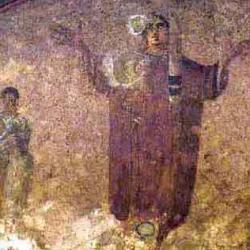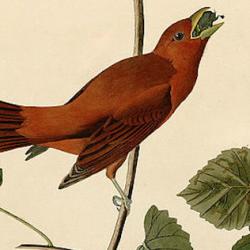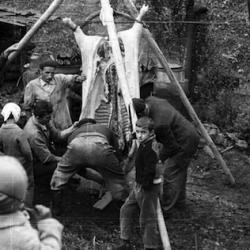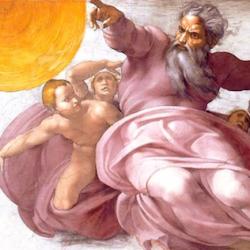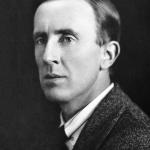Following a long tradition, Paul Griffiths says that creatures who come from nothing are constantly inclined to return to the nihil. We “remain uneasily in being, hovering over the void from which we came” (Decreation, 142).
Venerable as this is, it’s misconceived.
For starters we can ask what it is it that keeps us suspended over the void? Griffiths rightly stresses that “every creature must be ‘conserved,’ maintained or kept in being by the LORD” (141). If we hover in the hands of God, though, why are we uneasy? What more secure ontological foundation would we hope to have?
The image suggests that there is some attractive power to the nothing that draws us down, or would draw us down if God weren’t constantly pulling us back up. But to say that the nothing has such an attractive power is to suggest that the nothing is a sort of something. If it isn’t, how does it attract; if, on the other hand, the nothing is something, then it too is conserved in being by God, the same God who holds us in being. So, again, why are we uneasy?
The notion that we are “uneasily in being” and “hovering over the void” is intended to stress the fragility and dependence of existence, but in the end it does the opposite. If God has to exert himself against the attraction of the void to keep us in being, then not only the nothing, but we ourselves, seem to have some power other than the powers given us by God. We apparently have a power to pull against God, to lean toward the void. But where does that power come from? It must be a power from God. But would God give us the power to pull away from Him toward nothing?
The answer is, Yes, for God does give us the freedom to sin and turn from Him. But that seems to be a different sort of power than Griffiths is talking about. Griffiths isn’t talking about the tendency toward nihil that is inherent in sin. He’s talking about creaturely existence as such, and suggests that, apart from sin or the inclination to sin, we are pulled toward the nothing. That suggests a design flaw in creaturehood. Adam is, it seems, set up to fall merely by virtue of being created out of nothing. The inertia toward the void is already there.
And, finally, if we are “uneasily in being,” is it possible for us to reach a state non posse peccare? Is it possible for us to reach such a state and yet remain creatures? If so, then it doesn’t seem that uneasiness in being is inherent in creaturehood.






